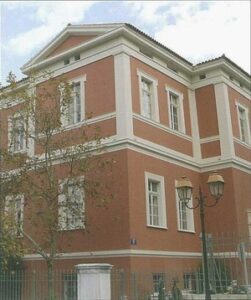Special Event
10th International Conference on Micro-Nanoelectronics, Micro-Nanosciences & NanotechnologiesSpecial Event: “40 years of Microelectronics in Greece”
Date & Time: Thursday November 2nd, 2023
Location: Main Hall of the National and Kapodistrian University of Athens (Panepistimiou 30)
This Special Event is scheduled as an Opening Ceremony on the first day of the Conference (November 2nd, 2023) to commemorate and celebrate 40 years of Microelectronics in Greece. The event will include plenary talks delivered by Greek pioneers of the field who will present the history and evolution of Microelectronics in the country. Moreover, prominent Greek scientists who have dedicated their life’s work to the development of Microelectronics will be honored for their contributions.


Attendants will have the opportunity to take a travel in time and watch how the field unfolded in Greece with two Plenary Talks to be delivered by Dr Nikos Glezos (Director of Research, INN, NCSR “Demokritos”) and Professor Dimitrios Tsoukalas (Department of Physics, SAMPS, NTUA)
The Scientists that will be honored for their contributions are:
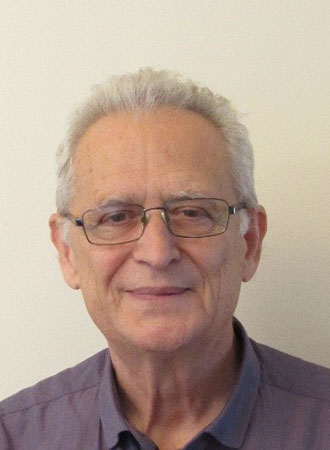
Dr Panagiotis Argitis, INN, NCSR “Demokritos”, Greece
Dr Panagiotis Argitis is currently Director of Research at INN-NCSR Demokritos leading the Project on Materials for Nanolithography and Organic Electronics.
He received his B.S. in Chemistry from the University of Athens in 1981 and his Ph.D. in Photochemistry / Photocatalysis from the same University in 1987.
In the period 1988-1991 was a Post-Doctoral Researcher in the Department of Chem. Engineering of the Univ. of Texas at Austin and in 1991-92 had a teaching position in Univ. of Crete. In 1992 joined the Inst. of Microelectronics (now part of INN) of NCSR Demokritos.
His research interests include new materials and processes for nanodevices/microsystems and organic electronics with emphasis on nanolithography, resists, EUV lithography, radiation guided nanopatterning, OLEDs, OPVs, sensing devices, and incorporation of metal oxides, polyoxometalates and other molecular redox systems and photosensitive compounds in electronic devices.
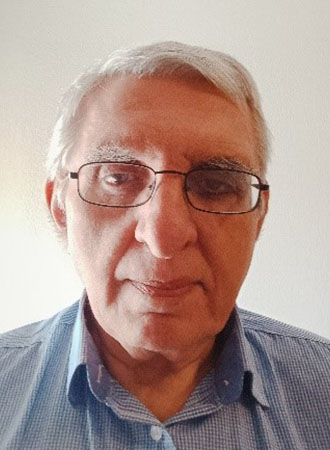
Dr Nikos Glezos INN, NCSR “Demokritos”, Greece
Dr Nikos Glezos received his B.Sc in Physics from the University of Athens, 1979 and his Ph.D. in Solid State Physics from the same university, 1984.
From 1995 and thereafter he became a Senior Member of the Research Staff, Institute of Microelectronics, NCSR “Demokritos” which in 2012 merged into the Institute of Nanoscience and Nanotechnology (INN).
His research interests are electron beam lithography process and process simulation, resist simulation by analytical and molecular dynamics methods, molecular electronic devices and charge transport in the nanoscale.
In collaboration with his former PhD student I.Raptis he developed an e-beam lithography simulation package which became a commercial product (LITHOS).
He has successfully supervised 6 PhD theses. He is the author and co-author of 90 scientific publications in journals and invited lecturer in nanotechnology conferences and workshops.
He has participated in EU nanotechnology programs (FREE, NANCAR, TASNANO) with activities in electron beam lithography and molecular electronics.
He contributed as lithography expert in the Technology Roadmap of Microelectronics (IST Programme) and he is a reviewer of European programs on molecular electronics and nanotechnology and to scientific journals.
During the period 2012-13 he acted as a Coordinator of the Department of Microelectronics of INN.
For the last 10 years he has been teaching the subject of Organic Electronics in a Master Course of the NTUA. He is married to Georgia Tsiropoula and has two daughters Myrsini and Iro.
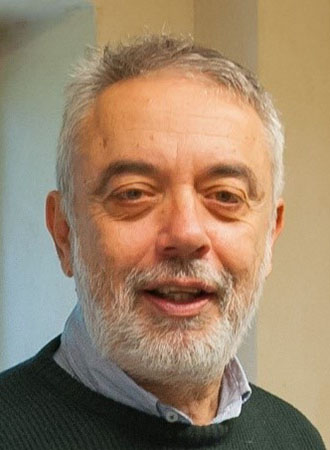
Dr Konstantinos Misiakos INN, NCSR “Demokritos”, Greece
Dr Konstantinos Misiakos received his B.Sc. in Electrical Engineering from the National Technical University of Athens, 1978, and the M.Sc. from Clemson University, Clemson, SC, USA in 1984. He obtained his Ph.D. in semiconductor device physics from the University of Florida, Gainesville, FL, USA in 1987.
He served as a visiting assistant professor in Electrical Engineering at the University of Florida from August 1987 until May 1989. Since 1989, he is with the Institute of Microelectronics (now INN), NCSR “Demokritos”, where he now holds the position of Director of Research.
His research interests include optical biosensors, monolithic silicon optocouplers for biosensing, solar cells and radiation detectors.
Dr. Misiakos is the author or co-author of 108 publications in refereed international journals, 51 communications in international conferences, three book chapters and holds three international patents on biosensors.
He coordinated three European projects: EU-BRITE III Project “BOEMIS” (1997-2000), EU-IST Project “BIOMIC” (2001-2004) and the EU-IST project “NEMOSLAB” (2006-2009), all in biosensors.
He has supervised four Ph.D. He is currently involved in the commercialization of a silicon based integrated interferometric biosensor in the form of a deep stick to probe biomolecular interactions on microwell arrays.
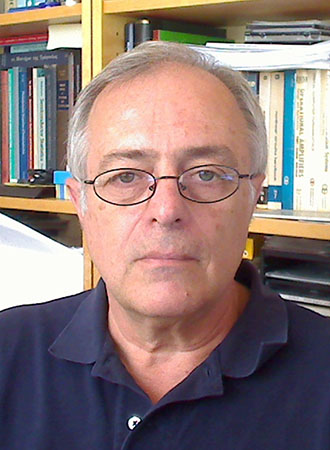
Prof. George Papaioannou, Solid State Physics NKUA, Greece
Prof. George Papaioannou is currently retired but is leading projects on the Reliability of Micro-Electro-Mechanical System (MEMS) Actuators and 2DEG III-V compound semiconductor devices. He received his B.S. in Physics from the University of Athens in 1974 and his Ph.D. in optoelectronic properties of semi-insulating semiconductors from the same university in 1976.
He joined the Physics Department in 1975 and served as a visiting lecturer at the Electrical and Electronic Engineering Department at UCL London, UK in 1980, 1983, and 1984. He also held the position of visiting Professor at the Electrical Engineering and Computer Science Department of the Georgia Institute of Technology, Atlanta, USA in 2007, contributing to the DARPA project IMPACT, and at LAAS Toulouse, France from 2008 to 2010, focusing on MEMS actuator reliability.
He chaired the 30th European Symposium on Reliability of Electron Devices Failure Physics and Analysis (ESREF) held in Athens in 2020. He also chaired sessions on MEMS Reliability in several ESREF and IEEE International Reliability Physics Symposium (IRPS USA) conferences.
Currently, his research interests are primarily centered around the main MEMS reliability issues of dielectric charging, where he has introduced new characterization methods, and RF stress-induced degradation in pseudomorphic GaAs MMICs.
His group participated in EU projects AMICOM, NANOMCOM, NANOTEC, NANOMAT, and POWERFLEX, two ESA projects, and two national funding projects (acronym: RADAR) and with countries outside Europe, all contributing to MEMS reliability. Additionally, he coordinated a project in the USA on radiation effects in II-V compound semiconductor devices and participated in an ESA project on RF stress reliability.
He has supervised eight Ph.D. students at NKUA and co-supervised one. Moreover, he co-supervised one Ph.D. student at the Georgia Institute of Technology, USA, and one at LAAS, France, both focusing on MEMS reliability.
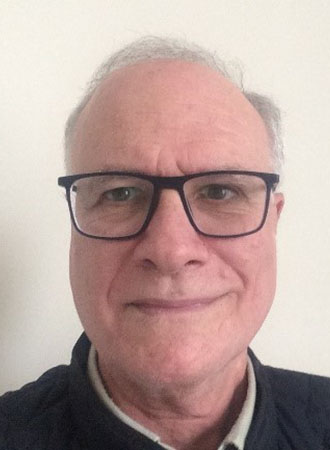
Prof. Dimitrios Tsoukalas Department of Physics, School of Applied Mathematical and Physical Sciences, NTUA, Greece
Dimitris Tsoukalas is a professor at the Dept. of Physics of National Technical University of Athens (NTUA). He obtained the Electrical Engineering diploma from NTUA and the DEA, PhD and Habilitation degrees from the National Polytechnic Institute of Grenoble (INPG), France.
From 1985 to 2002 he was a research scientist at NCSR Demokritos. In 1989 he was a visiting scientist at IBM Research Center at Yorktown Heights, USA.
In 2002 he joined NTUA where he initiated the ‘Microsystems and Nanodevices’ postgraduate program and the Laboratory of Nanomaterials and Devices. From 2009-2012 he was Director of the Institute of Microelectronics, NCSR ‘Demokritos’.
He has been Chairman of the IEEE Conference on Simulation of Semiconductor Processes and Devices in 2001 and of the European Solid State Device Research Conference in 2009 both held in Athens.
He has participated in numerous EU and national projects in the areas of microsensors and electronic devices.
He is a Technical Committee member in several International Conferences and member of the Editorial board of International journals in the above fields.
The Special Event will be followed by the Conference Welcome Reception will follow at Kostis Palamas building (Akadimias 48) right behind the Main Hall.
